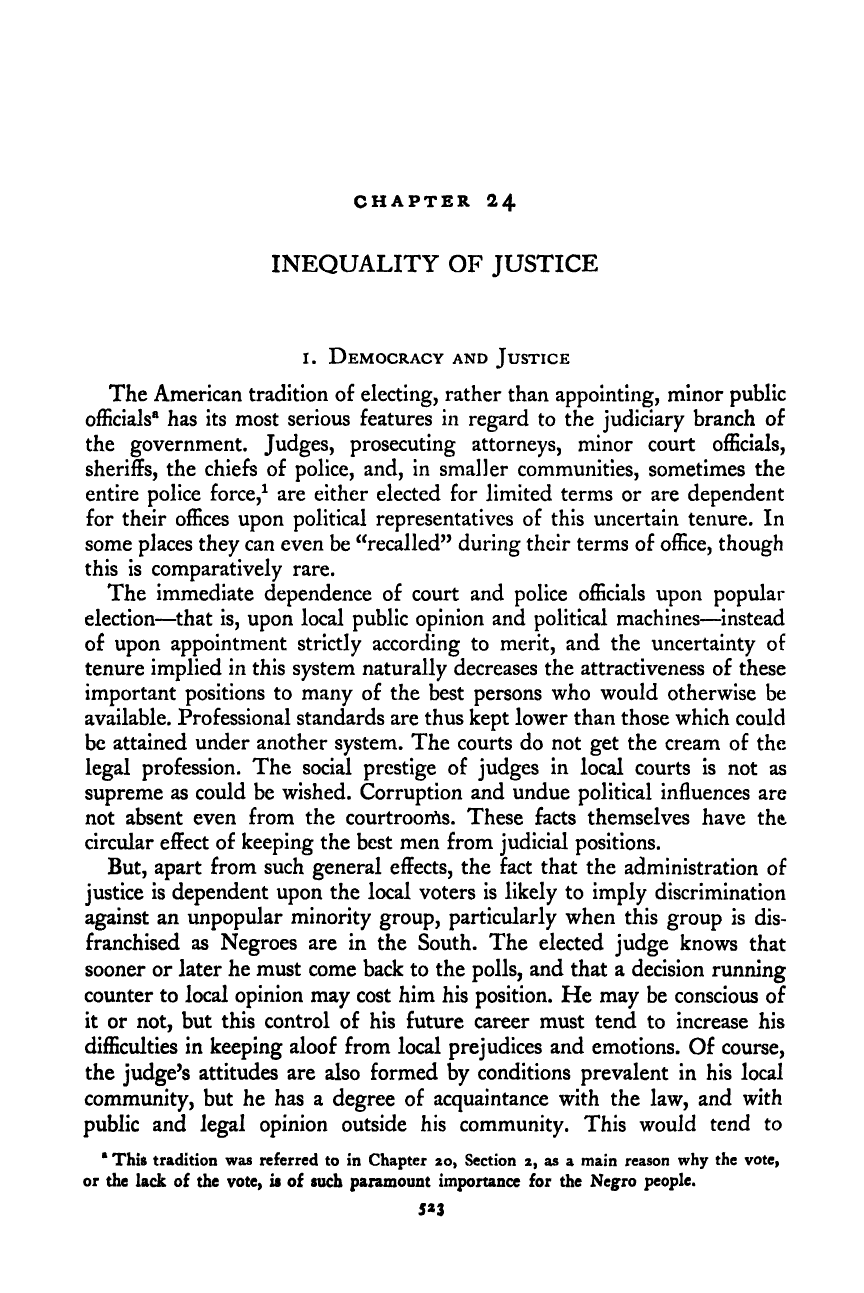Note: Gunnar Myrdal died in 1987, less than 70 years ago. Therefore, this work is protected by copyright, restricting your legal rights to reproduce it. However, you are welcome to view it on screen, as you do now. Read more about copyright.
Full resolution (TIFF) - On this page / på denna sida - VI. Justice - 24. Inequality of Justice - 1. Democracy and Justice

<< prev. page << föreg. sida << >> nästa sida >> next page >>
Below is the raw OCR text
from the above scanned image.
Do you see an error? Proofread the page now!
Här nedan syns maskintolkade texten från faksimilbilden ovan.
Ser du något fel? Korrekturläs sidan nu!
This page has never been proofread. / Denna sida har aldrig korrekturlästs.
chapter 24
INEQUALITY OF JUSTICE
I. Democracy and Justice
The American tradition of electing, rather than appointing, minor public
officials® has its most serious features in regard to the judiciary branch of
the government. Judges, prosecuting attorneys, minor court officials,
sheriffs, the chiefs of police, and, in smaller communities, sometimes the
entire police force,^ are either elected for limited terms or are dependent
for their offices upon political representatives of this uncertain tenure. In
some places they can even be ^^recalled” during their terms of office, though
this is comparatively rare.
The immediate dependence of court and police officials upon popular
election—that is, upon local public opinion and political machines—instead
of upon appointment strictly according to merit, and the uncertainty of
tenure implied in this system naturally decreases the attractiveness of these
important positions to many of the best persons who would otherwise be
available. Professional standards are thus kept lower than those which could
be attained under another system. The courts do not get the cream of the
legal profession. The social prestige of judges in local courts is not as
supreme as could be wished. Corruption and undue political influences are
not absent even from the courtroorfis. These facts themselves have the.
circular effect of keeping the best men from judicial positions.
But, apart from such general effects, the fact that the administration of
justice is dependent upon the local voters is likely to imply discrimination
against an unpopular minority group, particularly when this group is dis-
franchised as Negroes are in the South. The elected judge knows that
sooner or later he must come back to the polls, and that a decision running
counter to local opinion may cost him his position. He may be conscious of
it or not, but this control of his future career must tend to increase his
difficulties in keeping aloof from local prejudices and emotions. Of course,
the judge’s attitudes are also formed by conditions prevalent in his local
community, but he has a degree of acquaintance with the law, and with
public and legal opinion outside his community. This would tend to
* ThU tradition was referred to in Chapter zo, Section 2, as a main reason why the vote,
or the lack of the vote, is of such paramount importance for the Negro people.
5*3
<< prev. page << föreg. sida << >> nästa sida >> next page >>